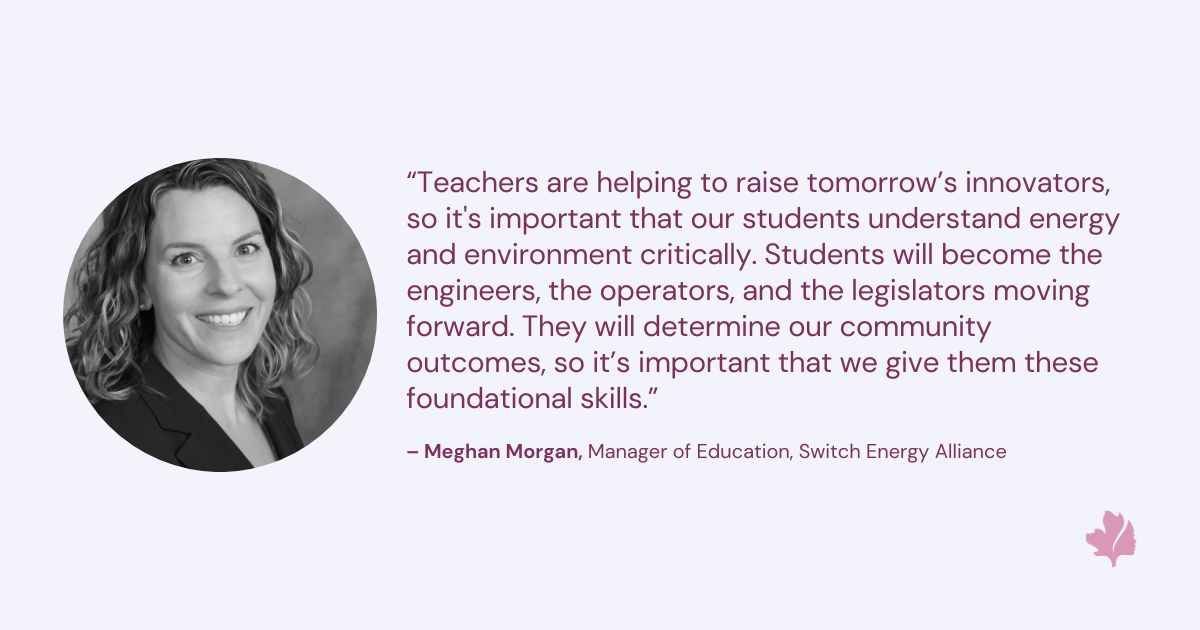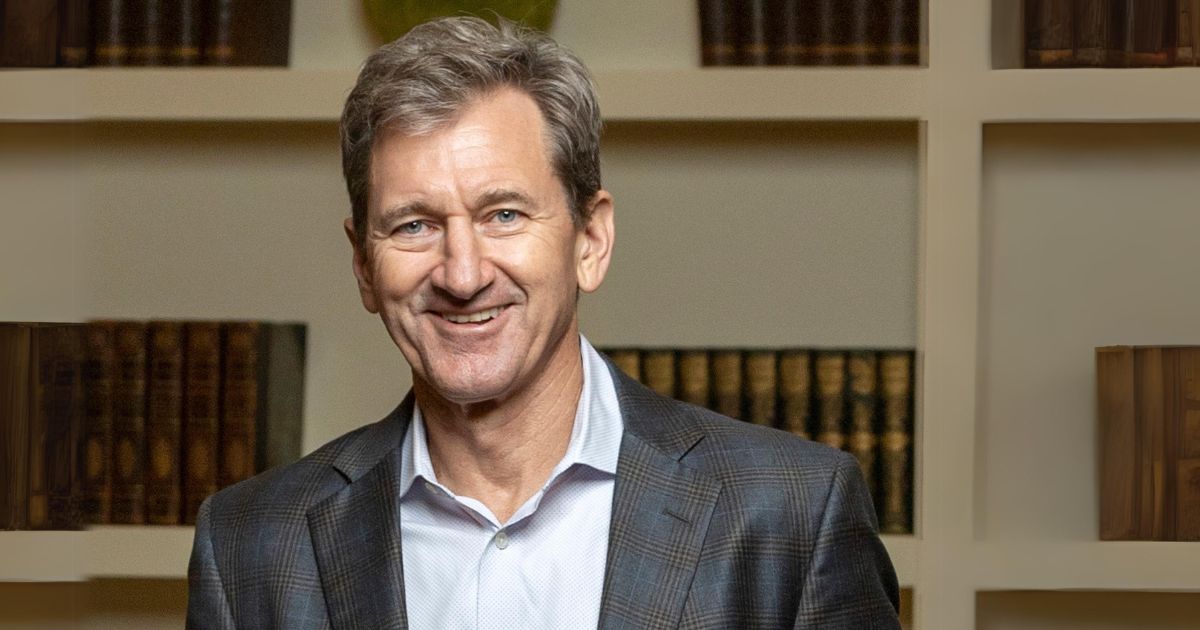At one point or another, Canadian elementary or secondary students will learn about climate change in school. What they are taught, though, is inconsistent across the country.
For instance, climate change is mostly covered in science units, but some jurisdictions cover it as part of social studies. And in a lot of high schools, it’s an elective in senior years so students can opt out of learning about the topic.
British Columbia and Nova Scotia have been credited with having strong climate curriculums and Ontario has a mandatory climate change course. But education is a provincial or territorial responsibility, so that means it looks different coast to coast.
As Lakehead University professor Ellen Field told the CBC, kids today learn about climate change mostly via news stories or on social media, but not in schools. And that’s a missed opportunity.
Providing teachers with resources to teach students about climate change, the environment and, more broadly, the role that energy plays in our lives is something that one organization is trying to tackle.
Switch Classroom is a free online learning platform for educators that provides factual, data-driven energy and environment curriculum for schools. If you’re a teacher reading this, you read it right — it’s totally free for you to use.
“Switch Classroom is designed to meet teachers and students where they’re at, in the classroom on a busy day, with a lot of information around them,” Meghan Morgan, manager of education at the Switch Energy Alliance who runs Switch Classroom, told Canada Powered by Women in an interview.
“We take films and turn them into bite-sized lessons that are two to four minutes long, and then we wrap teacher-made, teacher-ready resources and curriculum around those.”
Switch Classroom started four years ago in the United States where it’s now used internationally by more than 9,000 educators and 80,000 students.
The education platform is used most by Grade 9 through 12 students as part of environmental science, science, chemistry and physics classes.
Key to the education material is the fact that it’s nonpartisan, balanced and offers a critical look at the pros and cons of all energy sources and the environment.
Morgan — a Canadian who started her career as an educator in Manitoba — is part of the Switch Classroom team who is bringing the platform to Canadian teachers.
“We have a group of expert teachers teaching most grade levels, and many different subjects, who have been in the classroom for decades,” she says. “They help us design the activities that teachers need so they require no prep, and many of them include auto-graded activities. We make it quick, easy to use, and it’s totally free for educators.”
Morgan says students need to be able to recognize the pros and cons of every energy source and technology because they will go on in their lives and careers and foundational skills will help them contribute to innovating for the benefit of the environment, while also recognizing the practical role that energy plays in our world.

“Teachers are helping to raise tomorrow’s innovators, so it’s important that our students understand energy and environment critically,” she says. “Students will become the engineers, the operators, and the legislators moving forward. They will determine our community outcomes, so it’s important that we give them these foundational skills.”
The origin story of Switch Classroom
The Switch Energy Alliance is the brainchild of Dr. Scott Tinker, a geologist, energy expert, and documentary filmmaker.
Until January, Tinker was the director of the 250-person Bureau of Economic Geology, the State Geologist of Texas, and a professor holding the Allday Endowed Chair at The University of Texas at Austin. He says he “fired himself” after 24 years and now holds the title of Director Emeritus.
He has visited 60 countries where he has delivered more than 1,200 keynote and invited lectures to government, industry, academic, and general audiences, and he serves on private, public, academic, and government boards and advisory councils.
Tinker brought Switch Classroom to life after he and Harry Lynch co-produced an award-winning energy documentary film called Switch, which has been screened in more than 50 countries to more than 15 million viewers — including on thousands of K-12 and college campuses.
“Switch Classroom really grew out of the recognition that teachers were using our film content,” says Tinker in an interview with Canada Powered by Women. “We said, ‘Hey, maybe we’ll use our content and work with teachers to create curriculum that they actually need, and content that could be used easily in the classroom’.”

The Switch Energy Alliance is the brainchild of Dr. Scott Tinker, a geologist, energy expert, and documentary filmmaker.
The importance of nonpartisan conversations
People tend to think of energy in a binary way, Tinker says, partly because of how politicians often frame conversations on the topic.
Tinker says we’re confronted with a lot of absolute statements: Energy is either good or bad. Wind and solar power are clean and the only solutions to climate change. Petroleum products are dirty.
“In Canada, energy has been very politicized,” he says. “It’s almost weaponized by leaders, both at the federal level, and state and provincial levels.”
Teachers may unintentionally reinforce these binaries because they don’t have access to expert-informed curriculum.
The reality about energy and issues like climate change is far more nuanced. In a fun and engaging way, Switch Classroom explores the trade-offs with scientific facts, Tinker says.
There are links between energy and everything, and Tinker wants to reinforce the connection points in his teaching material.
“We want students to understand why energy matters so much to humans, and why it’s important that the whole world has access to energy for many things — including education and health care,” he says. “Things that we are doing to try to protect the environment are also important and powerful. We have to understand that everything has pros and cons, costs and benefits.”
Trade-offs are a familiar conversation for Engaged Women, as Canada Powered by Women research has shown that many recognize the environmental impacts of having oil and gas in the energy stack, but a majority are unwilling to make trade-offs that jeopardize their standard of living.

Photo by Kampus Production, Pexels
Encouraging individual ‘ah-ha’ moments
There’s a broad range of responses from students who use Switch Classroom, says Tinker. Some are surprised, some are satisfied and others are concerned.
Students who thought “coal was gone” are sometimes shocked or even disheartened to learn how prevalent it is in many parts of the world, he says. They’re even more surprised to learn that it isn’t going away.
Tinker points out that billions of people rely on coal, and “billions are using cheap coal to make our stuff, which gets delivered on an Amazon truck to your front door.” But there are ways to reduce its environmental impact, Tinker says.
Facts like these are a non-political way to inform a broader conversation about how energy generation and usage varies from country to country, and a lot of it depends on the region’s economic prosperity, he says.
When we take energy education outside the binary, young people develop a more comprehensive understanding of an essential topic, Tinker says. And as students grow into adults, they’ll use their knowledge and tools to make informed decisions about energy policy and tackle the challenges posed by a changing climate.
Morgan shares Tinker’s excitement around tomorrow’s generation of decision-makers and she encourages young people who are maybe hesitant to enter the energy industry to consider the opportunity they have to innovate around energy and the environment.
“There is no greater opportunity to innovate and make change than to step into established industries and fields and learn perspectives and then bring new ideas that benefit everybody,” she says.
Learn more about Switch Classroom here. Teachers, students, and parents, you can register here for free access to Switch Classroom. We also invite you to share this article with a teacher you know, or visit classroom.switchon.org. Teachers interested in joining Switch Classroom’s Teacher Advisory Council are invited to contact meghan.morgan@switchon.org.
